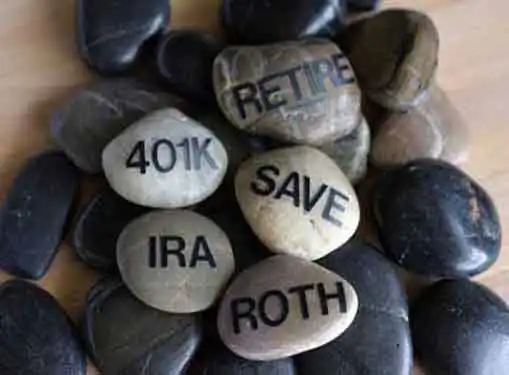The Cost of Retirement
Four Retirement Plan Options for Small Businesses
How do small business owners save for retirement? What sorts of savings plans are available for small business employees? You've got questions. We've got the answers.
Today's workers worry about whether or not they will be able to afford to retire someday - and they expect their employer to share their concern.

To attract and retain quality employees, you have to think about how your company will help your employers plan and save for retirement.
Implementing a quality retirement program isn't as easy as it sounds. There are a lot of options out there, each having its own particular set of advantages and drawbacks. If establishing an employee retirement plan is high on your priority list, your best bet is to consult a financial services professional who will help you decide which plan is best for your business. In the meantime, here are four of the most popular kinds of retirement plans for you to consider.
401(K) retirement plans are quite possibly the most popular retirement planning option in business today. These plans are highly flexible from the standpoint that they allow both employers and employees to contribute on a pre-tax basis but don't require the employer to match the employee's contribution. Although 401(k) plans are most effective for companies with 25 or more employees, they are a great way for employers and employees to work together to meet workers' retirement goals.
SEP-IRA (Simplified Employee Pension Plan)
SEP-IRAs are another attractive option for employers interested in helping their employees plan for retirement because (like their name indicates) they are simple and easy to maintain. Unlike 401(k) plans, employee contributions are not allowed for SEP-IRAs. Instead, the employer contributes the full shot, usually a percentage of the employee's annual salary. The amount you contribute can vary from year to year, but must be the same as the amount you contribute for your own SEP-IRA account. If your company has a SEP-IRA, you are also required to contribute for all of your employees rather than just a select few and the contribution must be the same percentage across the board.
Simple IRA (Savings Incentive Match Plan for Employees)
Don't let the name fool you. SIMPLE-IRA retirement plans can be a little complicated or at least more complicated than their SEP-IRA cousins. SIMPLE-IRAs are somewhat of a hybrid between a SEP-IRA and a 401(k). They allow for both employee and employer contributions with restrictions. The employer contribution is defined at a fixed match rate, usually 3%. On the upside, however, you may be able to make larger contributions for yourself than you could by using other plans.
Profit-Sharing Plans
Retirement plans based on profit-sharing can sometimes be appealing for employers and employees alike. Employers like them because they are only required to contribute when the business makes a profit. Employees find them attractive because it invests them with a sense of shared reward in the company's success. By their nature, these plans do not provide for an employee contribution and the employer's contribution will vary from year to year based on the business' performance and profit. These plans also involve a certain degree of sophistication that demands the services of a trained professional to administrate.
Share this article
Additional Resources for Entrepreneurs



Conversation Board
We greatly appreciate any advice you can provide on this topic. Please contribute your insights on this topic so others can benefit.